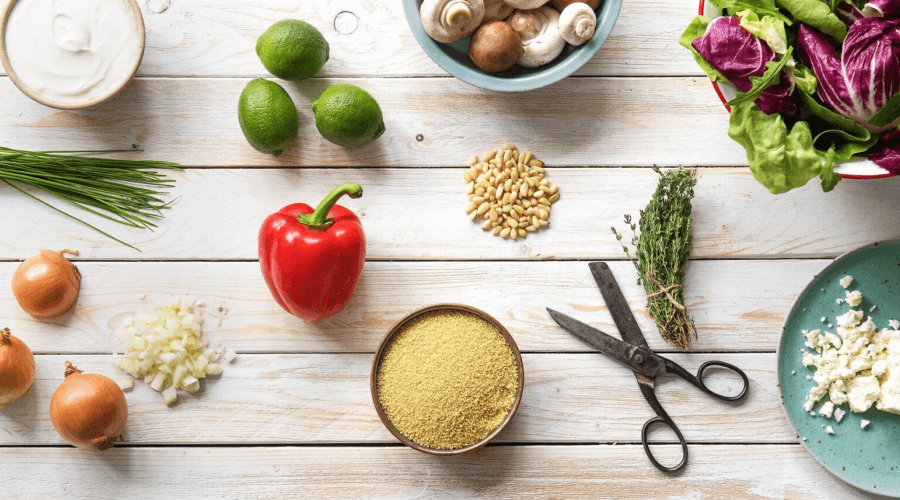
Switching to a vegan diet is an empowering step toward a healthier lifestyle and a more sustainable planet. Whether your motivation is health, environmental concerns, or ethical considerations, going vegan can bring significant benefits. However, making the transition can feel overwhelming for beginners. This guide provides practical tips and advice to help you embrace plant-based living with confidence and success.
1. What Does It Mean to Go Vegan?
A vegan diet excludes all animal-derived products, including meat, dairy, eggs, and honey. Instead, it focuses on plant-based foods such as fruits, vegetables, grains, legumes, nuts, and seeds. Veganism extends beyond diet for many people, influencing choices about clothing, cosmetics, and other lifestyle areas.
2. Benefits of a Vegan Diet
Adopting a vegan diet can positively impact your health, the environment, and animal welfare:
- Health Benefits: A well-planned vegan diet is rich in fiber, vitamins, and antioxidants, promoting heart health, improved digestion, and lower risks of chronic diseases such as diabetes and hypertension.
- Environmental Impact: Reducing reliance on animal agriculture decreases greenhouse gas emissions, deforestation, and water usage.
- Animal Welfare: Choosing veganism means opting out of industries that exploit animals for food and other products.
3. Steps to Transition to Veganism
Transitioning to a vegan lifestyle doesn’t have to happen overnight. Start small and build confidence as you explore new foods and habits.
- Start with Familiar Foods: Many everyday meals are naturally vegan or can easily be made so. For instance, pasta with marinara, veggie stir-fries, and oatmeal are simple options.
- Go Gradually: Begin by incorporating more plant-based meals into your week. Start with “Meatless Mondays” and gradually increase the frequency.
- Experiment with Substitutes: Discover plant-based alternatives for dairy, meat, and eggs. Almond milk, tofu, and vegan butter are widely available and easy to use.
4. Essential Nutrients to Consider
A vegan diet can be nutritionally complete when carefully planned. Focus on these essential nutrients:
- Protein: Found in beans, lentils, tofu, tempeh, and quinoa.
- Calcium: Found in fortified plant milks, leafy greens, and tofu.
- Iron: Found in legumes, nuts, seeds, and fortified cereals. Pair with vitamin C-rich foods to enhance absorption.
- Vitamin B12: Supplement or consume fortified products, as B12 is not naturally present in plant foods.
- Omega-3 Fatty Acids: Found in flaxseeds, chia seeds, and walnuts.
5. Vegan-Friendly Meal Ideas
Transitioning is easier with a few go-to recipes:
- Breakfast: Smoothies, avocado toast, or chia pudding.
- Lunch: Veggie-packed grain bowls, lentil soup, or wraps with hummus and fresh vegetables.
- Dinner: Stir-fries with tofu, vegan chili, or a hearty pasta dish with cashew cream sauce.
6. Overcoming Challenges
- Cravings: Explore plant-based versions of your favorite dishes, such as veggie burgers or dairy-free ice cream.
- Social Settings: Inform hosts about your dietary needs or bring a vegan dish to share.
- Reading Labels: Familiarize yourself with hidden animal-derived ingredients like gelatin, casein, and whey.
7. Embracing a Vegan Community
Joining vegan groups, online forums, or local meet-ups can provide support and inspiration. Sharing recipes, tips, and experiences with others can make the journey enjoyable.
Conclusion
Going vegan is a powerful way to prioritize your health, protect the environment, and advocate for animals. By starting small, planning meals, and learning about essential nutrients, you can confidently transition to a plant-based lifestyle. Remember, it’s a journey, and every plant-based choice you make is a step toward a more compassionate and sustainable future.







